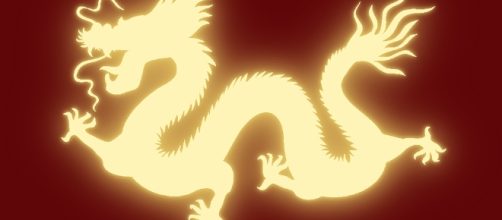Russia recently gave North Korea a new internet line at a time of escalating tensions in the Korean peninsula, Reuters reported. This move was a direct challenge to the efforts of the United States government to crack down on Kim Jong-un’s regime.
But unlike Russia, china sought better relations with the United States. According to experts, China ensured stability prior to a major meeting of Communist Party officials, CNBC reported.
White House commends President Xi Jinping
China was commended by the United States government for complying with UN resolutions by enforcing stricter sanctions against Kim Jong-un’s regime.
However, analysts believed that Beijing’s move on the North Korean crisis might just be transient. China’s demarche was for its own advantage.
In 2006, China began adopting numerous resolutions by the United Nations against North Korea following the latter’s first nuclear missile test. Although many from both sides doubted the enforcement of China’s latest sanctions on Kim’s regime, Beijing persisted on squeezing the North’s economy. This may signal the weakening of the strong Sino-North Korean economic ties. Nevertheless, historically speaking, the China-North Korea relations had a bad beginning right from the DPRK’s inception, The Japan Times reported.
For example, the trade between China and North Korea in the first six months of 2017 rose 10 percent to $2.55 billion, CNBC reported.
The increase was attributed to sectors excluded from sanctions.
Needless to say, the latest penalties of the Asian superpowers seem to be utterly significant. In the previous month, the Chinese government complied with the most recent resolution of the United Nations by banning seafood and textile imports from Kim’s regime. In addition, exports of iron ore, coal and oil products were also cut. This demarche by China will gradually take a hit on the economy of North Korea.
Nevertheless, the duration of China’s sanctions on Kim’s regime remained uncertain. According to Benjamin Katzeff Silberstein, an associate scholar at the Philadelphia-based Foreign Policy Research Institute, China would typically impose sanctions on the rogue nation temporarily because the international community’s attention is focused on Kim’s regime.
But as soon as tensions blow over, Silberstein added, the trade between the two countries would be reverted.
Of course, being North Korea’s ally, China basically wants to ensure the survival of Kim’s regime in due course. Silberstein further explained that China fears a surge of North Korean refugees in the event of a collapse of Kim’s regime. China was also apprehensive about any move by the White House to unify the Korean peninsula, which could give the United States a greater influence over the region.
Giving in to the Trump administration
The director of Asian studies at Tokyo-based Temple University, Jeffrey Kingston, said China’s sanctions on Kim’s regime were a deliberate move towards the appeasement of President Trump.
President Xi Jinping, Kingston explained, purposely conceded to the Trump administration to pave way for the success of President Trump’s visit to Asia in November.
For a time, the US government slammed China because of the latter’s failure to totally coerce the North. But very recently, the White House was set to a different tune. Commerce Secretary Wilbur Ross said the end of the business transactions between Chinese lenders and North Korean clients was indeed "a gigantic step" and a "very important pressure," CNBC reported.
President Trump expressed his praise for China for halting all banking relations with Pyongyang, The Washington Post reported. According to Donald Trump, the move was something unexpected from an ally of the rogue nation.
Furthermore, another considerable factor why China imposed the sanctions on Kim’s regime was the upcoming Congress of the Chinese Communist Party. This is a key political gathering that will decide the future leadership of China.
Beijing sought for continued economic and political stability both in its domestic and international affairs, Chin-Hao Huang said. Huang, an assistant professor at Singapore's Yale-NUS College and the head of studies for global affairs, elaborated that the recent sanctions of China were intended to alleviate the tensions over the Korean peninsula. Any distraction to the deliberation of the forthcoming Party Congress would be an unwelcome development, which includes Kim Jong-un’s provocations, Huang concluded.


